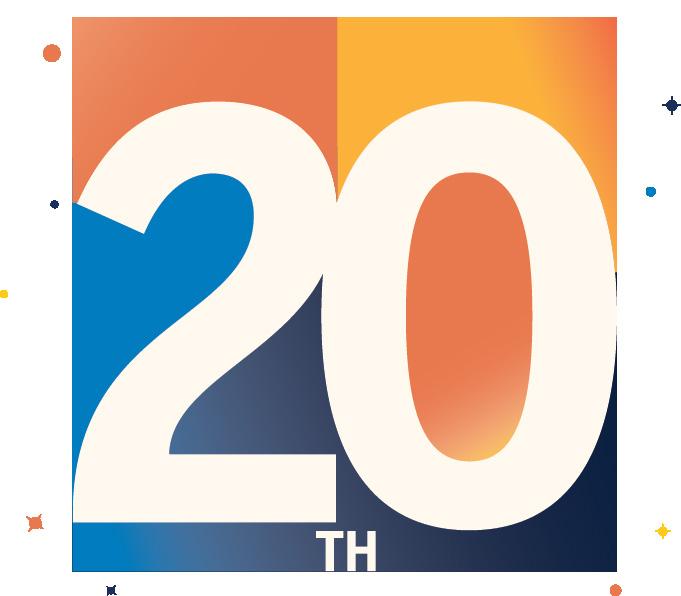
Originallogoconcept

10yearanniversarylogo

2005redesignedlogo
CurrentOSlogo






Originallogoconcept

10yearanniversarylogo

2005redesignedlogo
CurrentOSlogo




Welcome to the 2022 edition of the Organizational Studies Newsletter. Writing this is a bittersweet experience for me. After ten wonderful years as director of OS, I will be stepping down on June 30th. Having an opportunity to lead this program has been one of the greatest thrills of my academic life. Everything about our unit—from the students who first devised the independent concentration called Organizational Studies in the 1980s, to our first director, Richard H. (Rick) Price, who founded OS as a formal program 20 years ago, to the faculty, staff, students, alumni, and supporters who followed—has represented everything it means to be the Leaders and Best. I have loved leading this program, but it’s time for new blood. I am looking forward to turning things over to our new director, Elizabeth (Beth) Popp Berman. I know that OS will be stronger than ever under her leadership.
As we move into the third year of the COVID-19 pandemic, things thankfully appear to be improving. Our faculty and students were in the classroom the entire year, and we increasingly held our events inperson. This includes our graduation ceremony, and our recent 20-year anniversary celebration, which included a keynote from our distinguished alumna, Sherri Chisholm (’07), and a panel of OS luminaries, including Rick Price himself, Dave Barger, the cofounder and former CEO of JetBlue Airways and long-time member of the OS Leadership Committee,
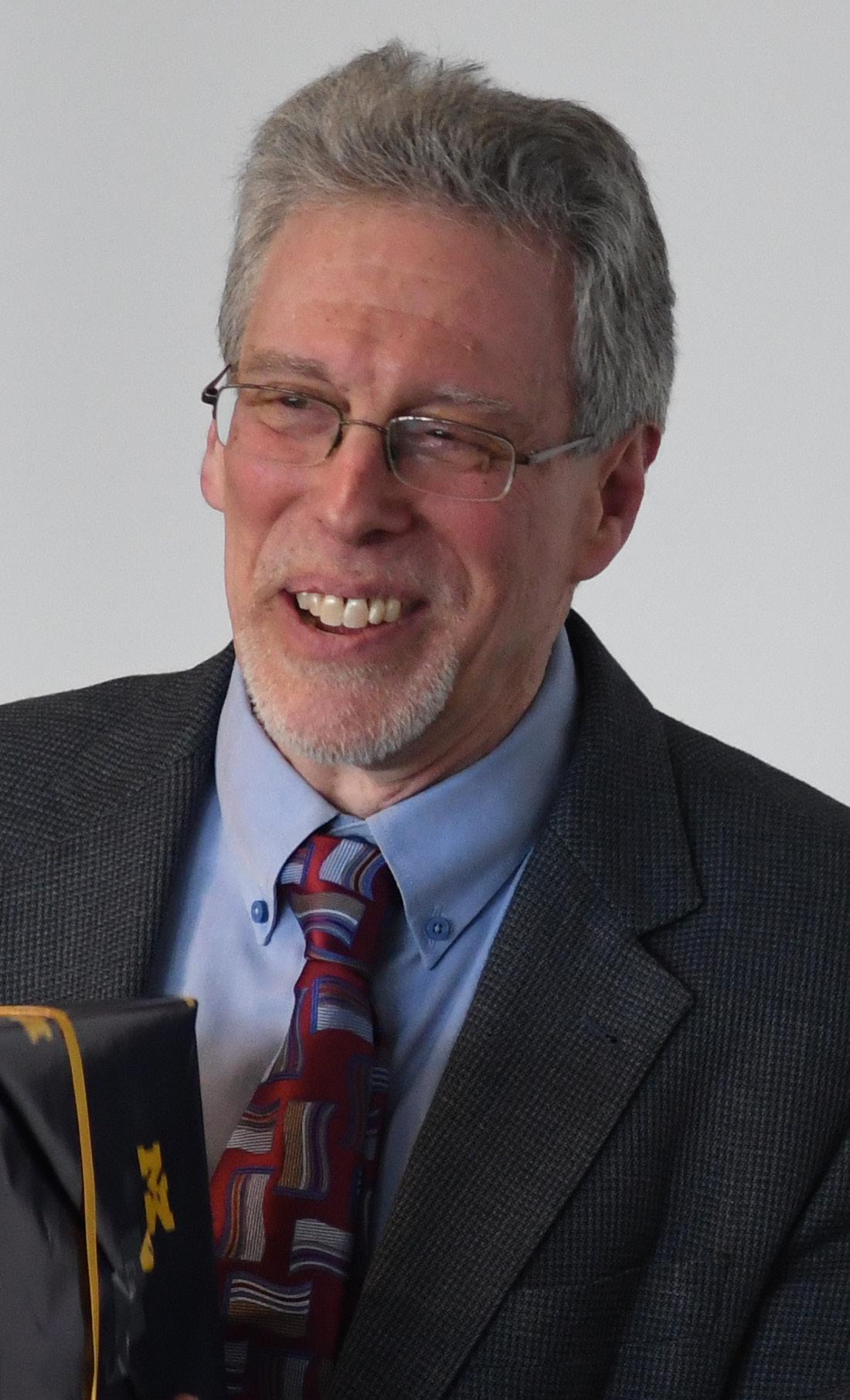
DR. MARK MIZRUCHI

"As you read the following pages, you will gain a deep appreciation for the qualities that make our program so special."
and two of our pioneering faculty members, Victoria Johnson and Jason Owen-Smith. It was an event that no one wanted to leave, and that you can view on the link to our website. Meanwhile, OS continues to thrive. Our faculty and students continue to perform brilliantly: sixteen of our students were named to Phi Beta Kappa, and our faculty continue to push the frontiers of knowledge in organizations and related fields. I am delighted to note that we will be welcoming two new members to our faculty ranks. Davon Norris, who is completing his doctorate in sociology at Ohio State, will join us in the fall on an LSA Collegiate Fellowship (awarded to outstanding early-career scholars who can contribute to the College’s diversity, equity, and inclusion mission), followed by a tenure-track position as an OS faculty member. We have assured him that it will not be difficult to transition from a Buckeye to a Wolverine. Catherine Thomas is completing her doctorate in psychology at Stanford, and will join us in August 2023 as an assistant professor of organizational studies and psychology. These new faculty members will bolster our already powerhouse group, allowing OS to maintain its stature as the leading program of its kind. We are also now halfway to our goal in the Campaign for OS, an initiative to build a $1 million endowment that will fund our many student programs in perpetuity.
As you read the following pages, you will gain a deep appreciation for the qualities that make our program so special. So enjoy the newsletter, and let us know what you think. And as I sign off, I want to say to everyone who is a part of OS— our current and former students, faculty and staff, our parents, our supporters, from every corner of the world—thank you for giving me an opportunity to be associated with this program. Thank you for everything you do. You are what makes OS great. Please continue to stay safe as the pandemic (hopefully) winds down. And as always, Go Blue!

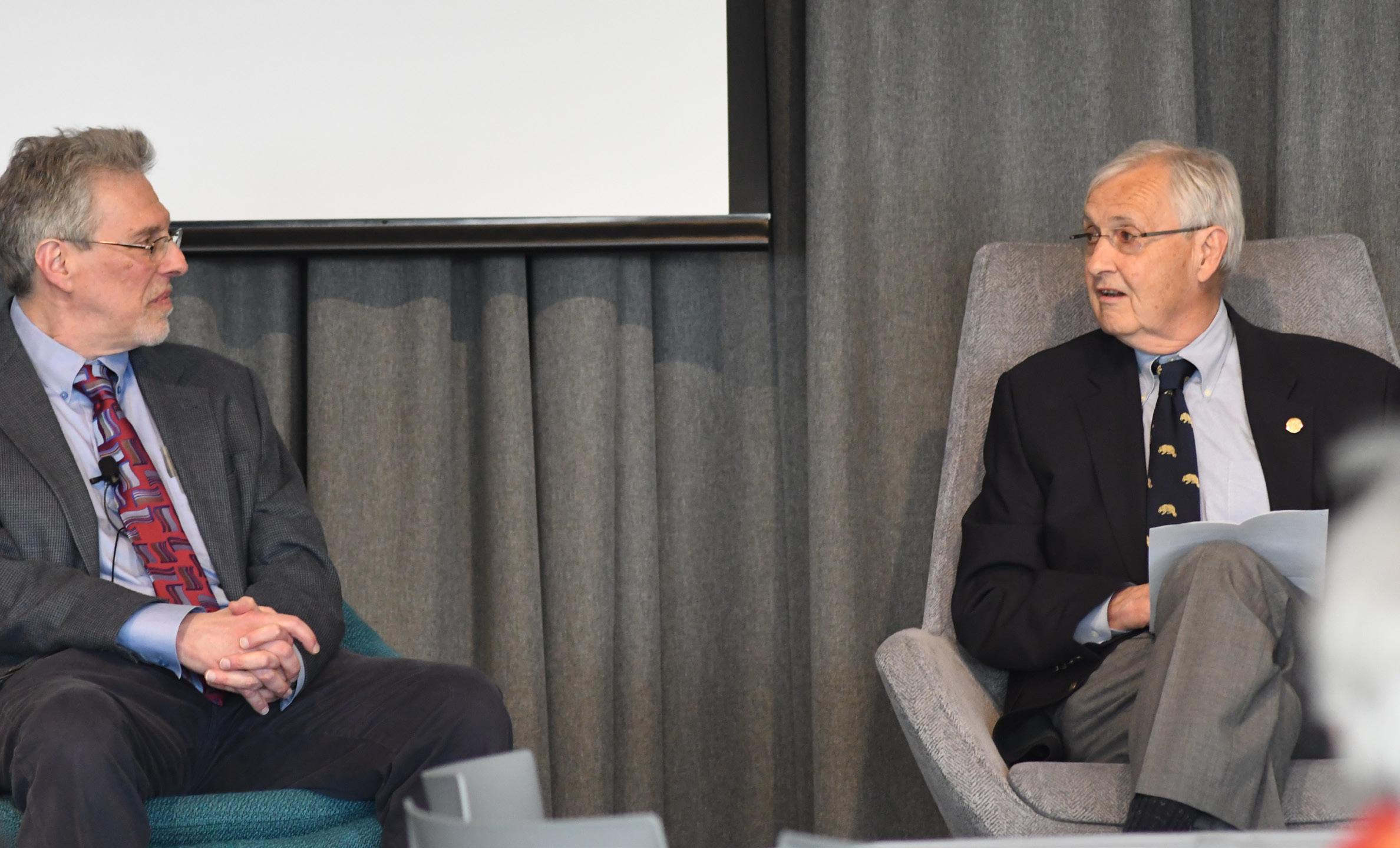
Although we are celebrating the 20th anniversary of the Organizational Studies (OS) program, OS actually got its start twelve years prior to its official founding in Fall, 2001. A groundswell of students completing individualized concentration plans (ICP) focusing on organizations (nearly 800!) spanned from 1989 to 2000. In Winter 2000, after 174 students graduated with an organizational studies focus without the benefit of a structured program, a working group was established to create the bare bones of the curriculum. Founding Director Rick Price worked together with organizational scholars from across campus and a student representative to submit a proposal to the College. During the following formative years of the development of the major, some important basic principles were established that remain our inner compass in our 20th year: 1) The approach to
a curriculum in organizational studies would have its foundation in the liberal arts; 2) The curriculum would be interdisciplinary and student-centered; 3) Students would be in the driver’s seat regarding their focus (or pathway) through the curriculum, ensuring their degree was customized to their interests; 4) The program would strive to create a community for its students both within and outside the classroom. Over time, and with significant help from alumni donors on the Organizational Studies Leadership Committee (OSLC), OS has continued to expand its capacity to offer its students the best academic experience possible in LSA as well as providing a home to which our current students and alumni continue to remain connected. See our timeline for some important milestones in our 20-year history.
Launch of the OS Program


The creation of the first ORGSTUDY course: 410 Advanced Research Methods; Professor Jason Owen-Smith becomes the first faculty member; launch of the OSLC

Rollout of the OS Pathway; creation of the JetBlue Scholarship to London School of Economics; launch of the core courses OS 305 & 310

2004
OS wins LSA Departmental Award for Contribution to Undergraduate Education


2007
Professor Victoria Johnson becomes the first female faculty hire; pilot of the Honors program; establishment of the Barger Family Endowed Professorship
Creation of the Barger Leadership Institute (as part of OS)
Professor Steve Garcia, original instructor for Negotioations, is hired


Jason Owen-Smith becomes the Director of OS
Mark Mizruchi assumes the Directior position, and Professor Sara Soderstrom is hired


Organizational Diversity Initiative (ODI) is founded as an OS student organization

Professor Arnold Ho is hired
Creation of the OS Student Leadership Committee



OS moves to Weiser Hall
2016-2017 hiring boom with three new professors: Jeremy Levine, Ashley Harrell, and Steven Samford
OS was also recognized by an External Review Committee as the "strongest program of its type in the nation"


Professor Nick Camp is hired; COVID-19 hits; OS switches to remote teaching

OS celebrates its 20th anniversary and switches to hybrid teaching
Professor Elizabeth Popp Berman is hired
Elizabeth Popp Berman becomes first female director of OS
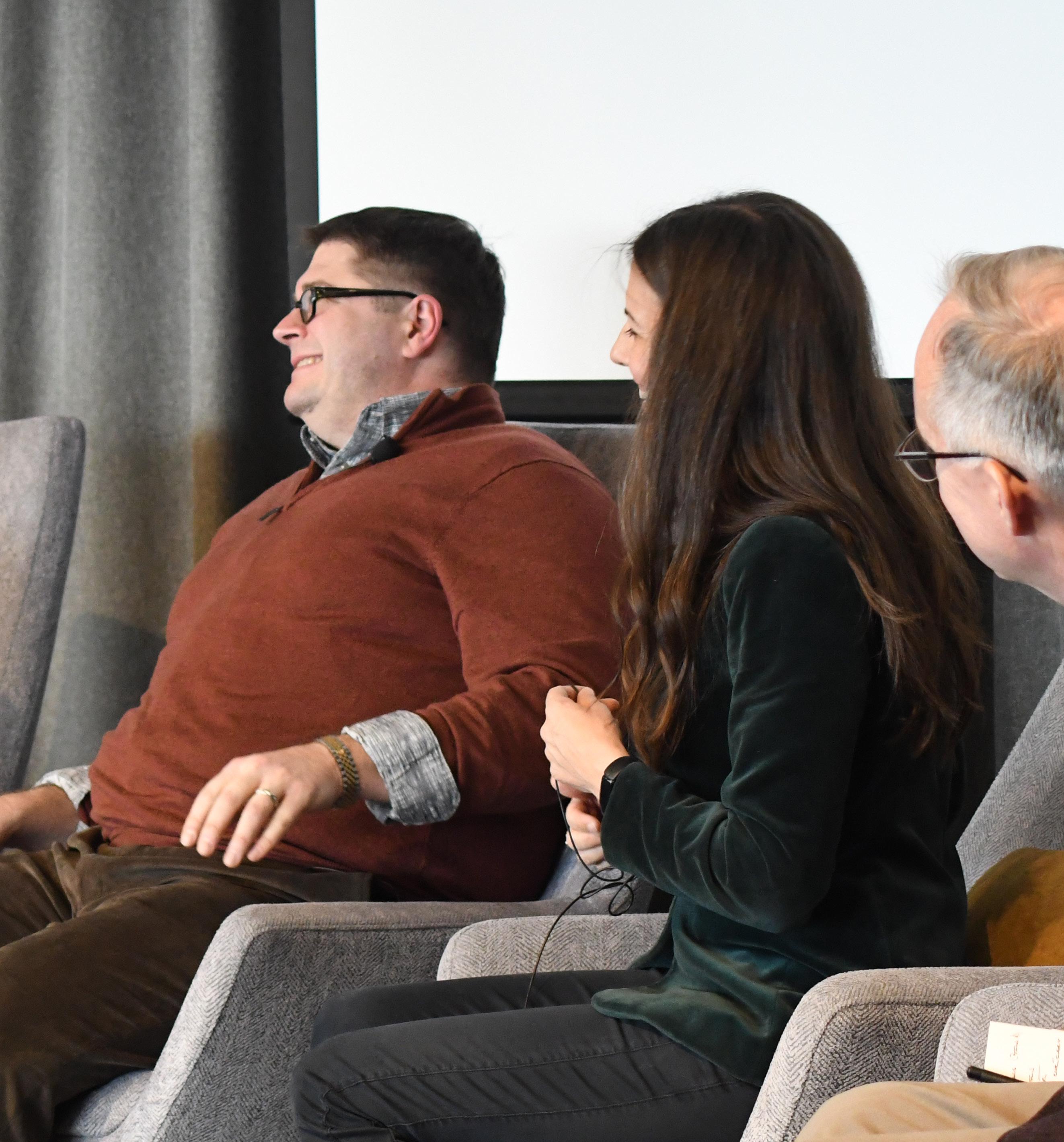

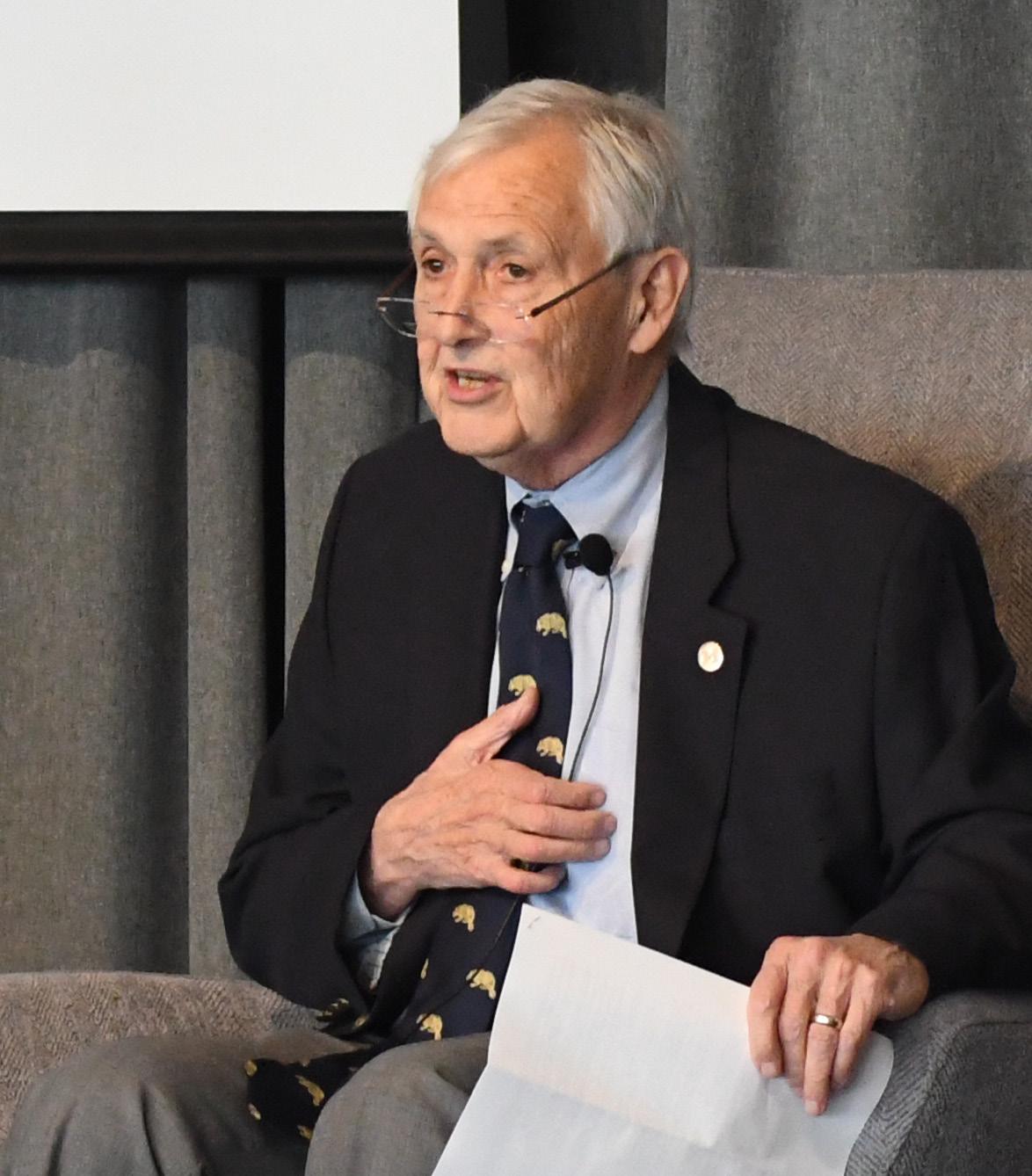
Our 20th anniversary event, held on March 28th, 2022, brought together alumni, past and present faculty and administration, and current students to celebrate and remember how far this program has developed since its founding. The event began with a memorable keynote speech from OS alum Sherri (Davis) Chisholm. Sherri shared her unique journey and the paths she took while in OS and beyond. "...I am incredibly thankful for the foundation that [OS] has provided me, one I continue to build upon and refer back to when I need a little strength," said Sherri. She ended with a message to the current cohorts of OS students, "I encourage you to lean into and embrace the possibilities of OS and let it nurture the very best you you can be."
The celebration continued with words from the first director of our program, Rick Price, former faculty member, Victoria Johnson, the first OS faculty member, Jason Owen-Smith, and ended with words from the program's first supporter of our study abroad programming, Dave Barger. Each speaker provided insight into the successful development of the program, and boasted about the excellence of this community. We hope you will view and enjoy our full event recording.
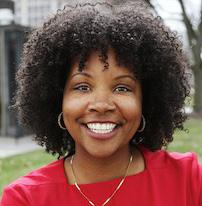
SHERRI
"I was transported to my lectures in the old Dennison building, and was reminded how special this program is.
Cheers to the next 20 years and beyond!"
- KELLY REINHARDT, CLASS OF '08
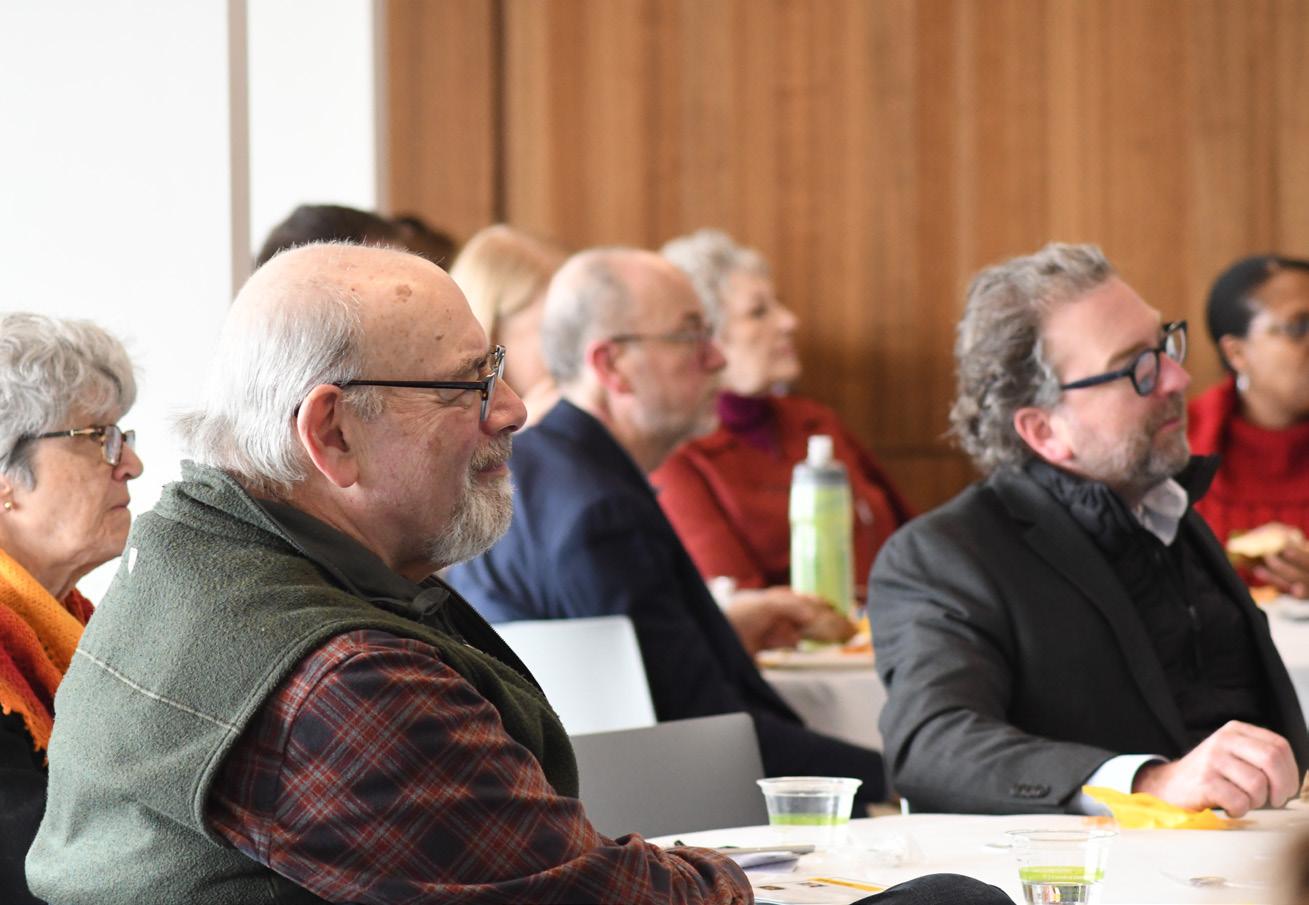

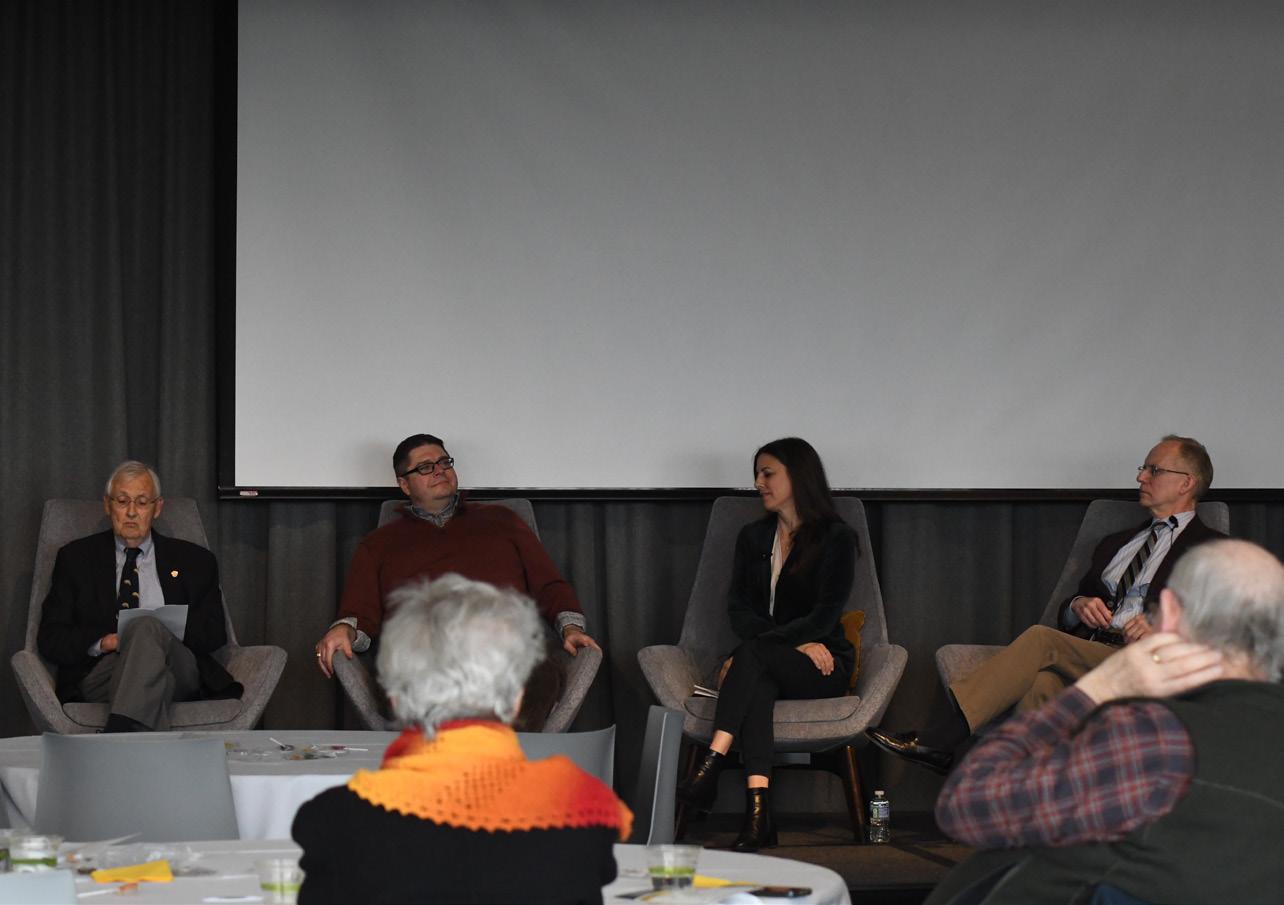

BY: CATHERINE PHILBIN

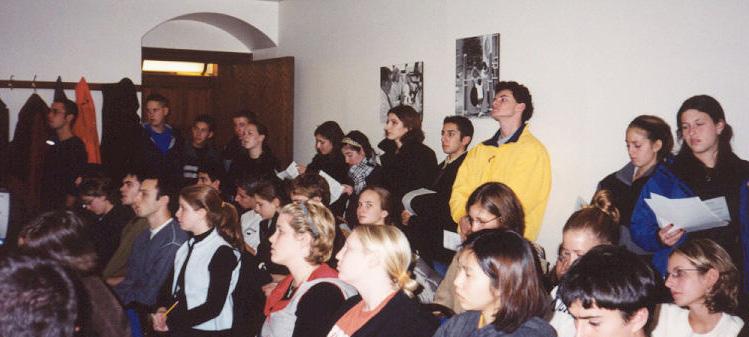
Through 20+ years of advising in OS, the students have remained remarkably similar. Students choose OS because they value both an interdisciplinary curriculum where they can explore and define their own educational pathway, and a small tight-knit community that gives them a home at this large university.
What has changed is the scope of curricular offerings in OS. In the early 2000s, as OS was getting started, we offered very few of our own ORGSTUDY courses, along with a limited selection of approved courses from other departments. Students often struggled to find relevant courses to include in their pathway, and the main challenge in advising was making sure students could meet all graduation requirements in their preferred timeframe.
Over the years, as faculty were hired and the program became more intentional about seeking out relevant courses from other departments, the curriculum has now expanded to the point where students can easily find courses to meet requirements, spread over a much broader array of schools, departments,
programs, and topics (including many ORGSTUDY seminars), allowing students great flexibility to explore their interests and build their background in multiple areas.
This presents a different type of challenge for advising. While we still help students to be sure they are meeting all graduation requirements, we can now encourage them to consider the many different ways that may be available to them to reach their goals. Advising is a much more exploratory process when so many different opportunities are available. Advising OS students, with their many interests and talents, is never boring or repetitive. At its best, it is a series of interesting questions and conversations as students consider options, seek out connections in the interdisciplinary curriculum, and develop their interests and goals as they move through the program.
As OS continues to expand both our curriculum and possibly our student cohort, advising will continue to play a vital role to helping students get the most out of their OS experience!
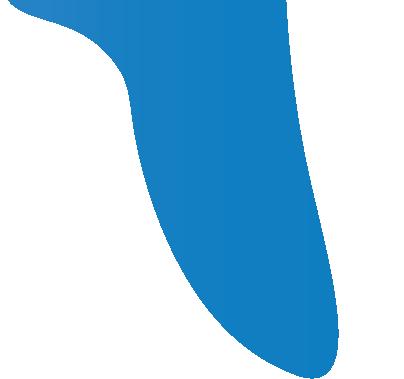




As OS transitioned back to in-person classes after almost two years of virtual learning, the OS community reunited to build and rebuild connections. Through OS classes, hanging out on the 8th floor, social media engagement, and hosting fun social events, students were able to connect.
The OS recruitment team, led by senior Katie Chung and junior Ashley Huang, held a mix of both virtual and in-person events, working closely with the DEI student team, senior Hannah Aronow and junior Samara Kamal, to help ensure that OS reached a wide and diverse group of students. Together they planned and held informational events for groups like the Comprehensive Studies Program, Applied Liberal Arts classes, and first-year dormitories, as well as OS Info Night. The teams also educated current OS students about inclusive conversations when helping prospective students with their applications for OS. The teams reached out to identity-based organizations, held informal diag sessions, and lead another successful round of virtual application review sessions with over 100 applications reviewed in less than two weeks! OS hopes to build stronger relationships with CSP and other U-M programs, in an effort to welcome more first generation and marginalized students to the OS community, and all of the opportunities we offer.
As the semester continued and the apprehension around the pandemic eased, students were eager to connect through in-person social events. The OS event team leads, seniors Sara Apelbaum and Eniah Hill, kick-started the year with a Cookie Social where students had the opportunity to hang out, eat cookies, and meet peers. Students in both cohorts were also eager to continue the Buddy Program that was initiated by last year's student leadership team. Students were matched based on their academic and extracurricular interests and provided gift cards to connect with their buddies over a warm drink. Throughout the year the team hosted a variety of events, including trivia nights, study night sessions, and a pizza


party, collaborating with their fellow leadership team members and the Barger Leadership Institute to guarantee our students had ample room to continue building bonds and connections.
Another way our community has maintained connections in a more virtual world is through a strong online presence via social media, stewarded this year by OS senior Kaitlyn Colyer. The OS cohorts used GroupMe, Facebook, Snapchat, and Instagram to support one another and advertise the program to the U-M community. We featured alumni spotlights throughout the year and our graduates via warm senior sendoff profiles during the last two months of winter term. This year we reached more students than ever when we managed a successful takeover of the LSA Instagram account in early April. Next year we plan to continue our exploration and further development of our online community.
Our OS peer mentors, seniors Rashi Watwani and Tommy Wiaduck, shared the allure of the Organizational Studies program and their personal experiences with prospective students through Zoom and face-to-face meetings. In working closely with our new admits, Tommy and Rashi helped to guide them in creating a new collection of impactful student pathways while planting the seed of community that will continue to grow across current and future cohorts in the years to come. Though meeting with students was by far the most rewarding aspect of their role, the team also took advantage of their position as liaisons to help maintain the greatness our beloved program has championed for over 20 years.
Tommy and Rashi note that, "this year’s work in supporting our community has been a comforting reminder of the reasons that led us all to finding a home in Organizational Studies. Although our graduation comes alongside bittersweet feelings of nostalgia and excitement, we take pride in knowing the values and foundation of our program will continue to thrive for years to come".
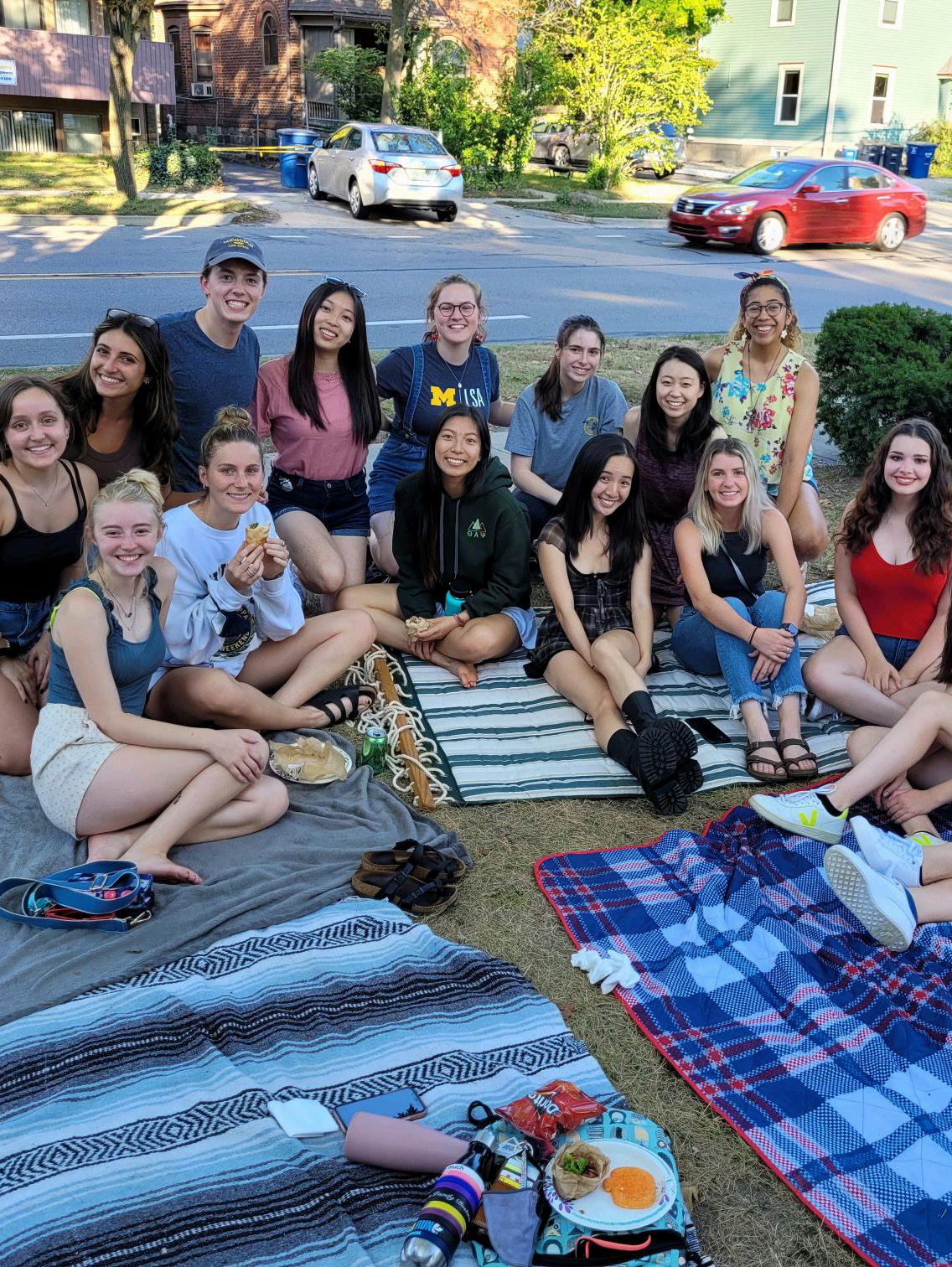
“We look forward to continuing to make Organizational Studies a more inclusive program for non-traditional students, students of color, and first generation students in the many student cohorts to come.”
- OS DEI STUDENT TEAM
CONTRIBUTIONS BY
JEREMY LEVINE AND STEVEN SAMFORD

Over the past 20 years, the Organizational Studies program has prided itself on its interdisciplinary character and spirit of freedom for our students as they plan their academic program, and our faculty as they delve into their research topics. Our OS490 advanced research courses provide our students with the opportunity to learn more about what faculty do in their day to day beyond teaching in the classroom. Faculty members provide students with the tools to learn about how to think rather than what to think. In a research course, students experience the messy “underbelly” of research projects as opposed to only seeing the final data. They learn about organizations that they may not have otherwise thought of. Even if they do not plan to enter a career field that requires a lot of independent research, the experience is worthwhile as it allows them to develop critical thinking and analytic skills.

OS Assistant Professor Steve Samford led an advanced research team during the winter 2022 term on "Cooperative Enterprises in a Changing Global Economy." The course focused on economic development in poor and middle income countries, more specifically on small micro-enterprises and the ways in which they use technology. Samford notes that "the vast majority of enterprises are small, but we know that many struggle at adopting technology as they tend to be more conservative or risk adverse. So, when there is an available tech that can improve their productivity or working conditions, they may not adopt it." His research asks the following questions: how do interactions between micro-enterprises and the networks they form affect their ability to adopt new technology; and how do interactions with government programs change or affect their ability to adopt new technology? The course also looks at how changing conditions in the global economy impact the way these cooperatives operate. Students who took this course collaborated to collect data and coordinate interviews with different cooperatives in an attempt to see how innovation could shed light on what’s happening with smaller enterprises in poorer parts of the world.
OS Assistant Professor Jeremy Levine also taught an advanced research course this winter. The course, titled “The Politics of the Crime Victims’ Movement in the U.S.", focused on the benefits and rights of policies for crime victims, an aspect of inequality within the criminal justice system that has received comparatively less attention than other areas such as mass incarceration and policing. Crime victims are
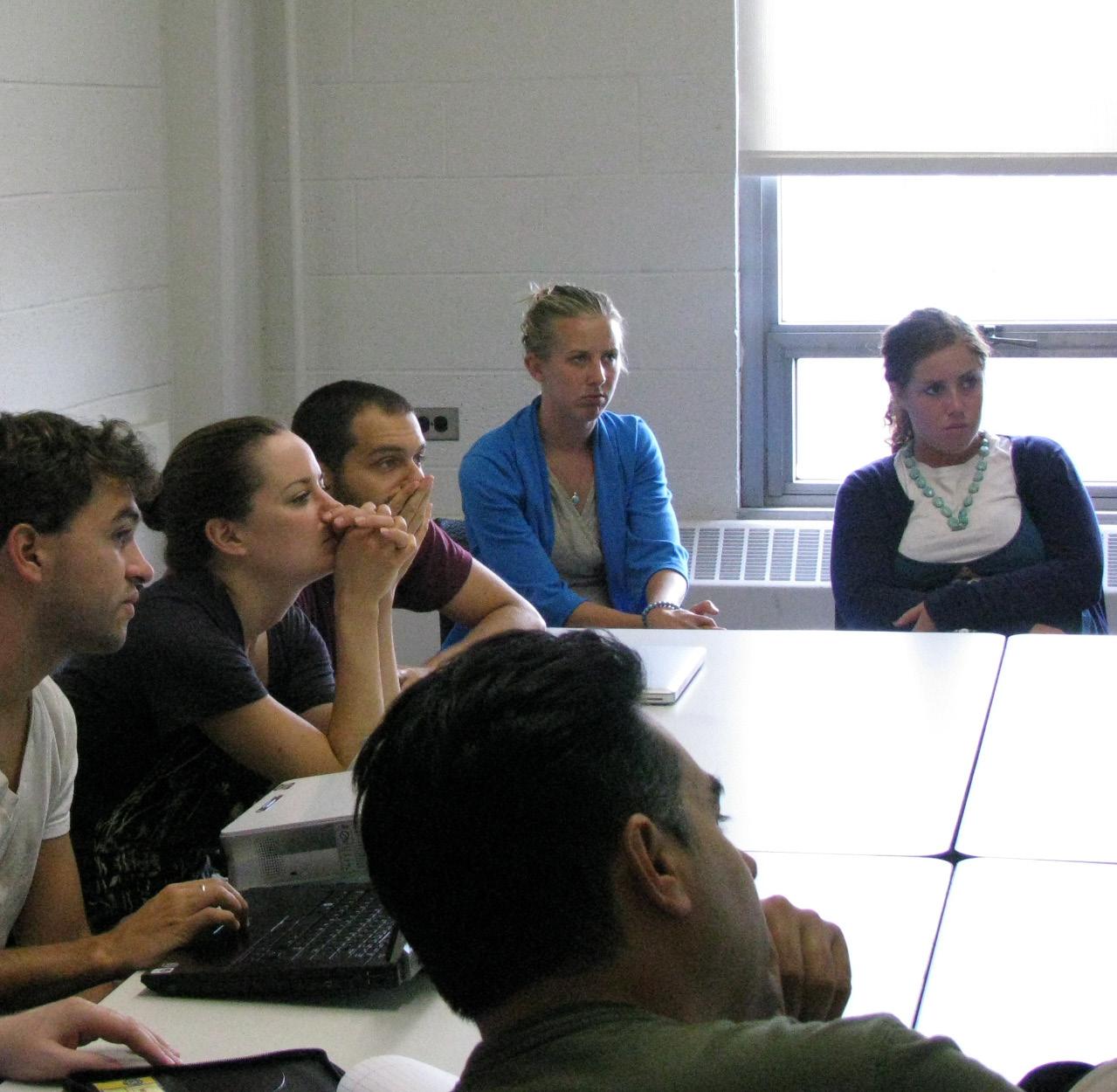
some of the most important subjects in American politics today. They serve as the emotional anchors of criminal justice policy, memorialized in legislation such as Megan’s Law and Jessica’s Law. Since the 1970s, thousands of organizations, mostly nonprofits, were founded to serve victims’ needs. Together, they have crystallized into a full-fledged victims’ rights movement. These organizations offer direct services and lobby government for policies that would aid victims. Many also lobby government for policies that penalize offenders, aligning themselves more with the punitive criminal justice system.
OS students who took this course were critical to this research, working with UM librarians to create legislative histories of the laws that were created and that developed benefits and financial compensation
for crime victims. Students also combed through bills and other legislation to analyze how these laws were constructed; who was seen as a victim, who was restricted from getting benefits, and how were these policies paid for. Many of the laws included a novel innovative financing tool – criminal fines and fees. Rather than paying from general revenues such as taxes, these were some of the first laws passed that created a benefit from a particular group of people, paid for by increases to criminal fines and fees. Over the years this has grown exponentially and has really important implications for equality and racial inequality particularly. The OS490 students are at the forefront of uncovering the historical developments of those laws. “This research is helpful for identifying past problems and ways we can create real solutions for the future" says Professor Levine.
These particular projects are of great interest to students who wish to engage in the legal and criminal justice system, technology, public policy, or justice inequality.
“This research is helpful for identifying past problems and ways we can create real solutions for the future.”
- JEREMY LEVINE

BY THE OS DEI TEAM
Although the OS program represents a broad array of career and organizational interests, the program has long struggled to increase the demographic diversity of its student population. In its early days, staff members and occasional student temp employees led OS student recruitment efforts and focused on outreach to the Newnan advising center and residential programs to reach populations that had historically not been applying to the program. As is the case with many of the program’s innovations, a couple of OS’ers, Laura Sanchez-Parkinson (’13) and Shekinah (Bell) Singletery (’14) created the Organizational Diversity Initiative (ODI), with three pillars as its focus: recruitment of a more diverse pool of applicants, addressing issues of diversity within the curriculum, and finally, creating an inclusive community for underrepresented students. When the OS Student Leadership Committee was launched in 2017, one sub-team, the recruitment team, continued student recruitment efforts by presenting to student organizations and affinity groups and marketing more broadly to students via information tables and soundbites in OS pre-requisite courses. Again, student activism in the form of the 2019-20 ODI members was instrumental in advocating that students doing DEI work should be compensated for their time just as their peers doing recruitment, peer mentoring, and event


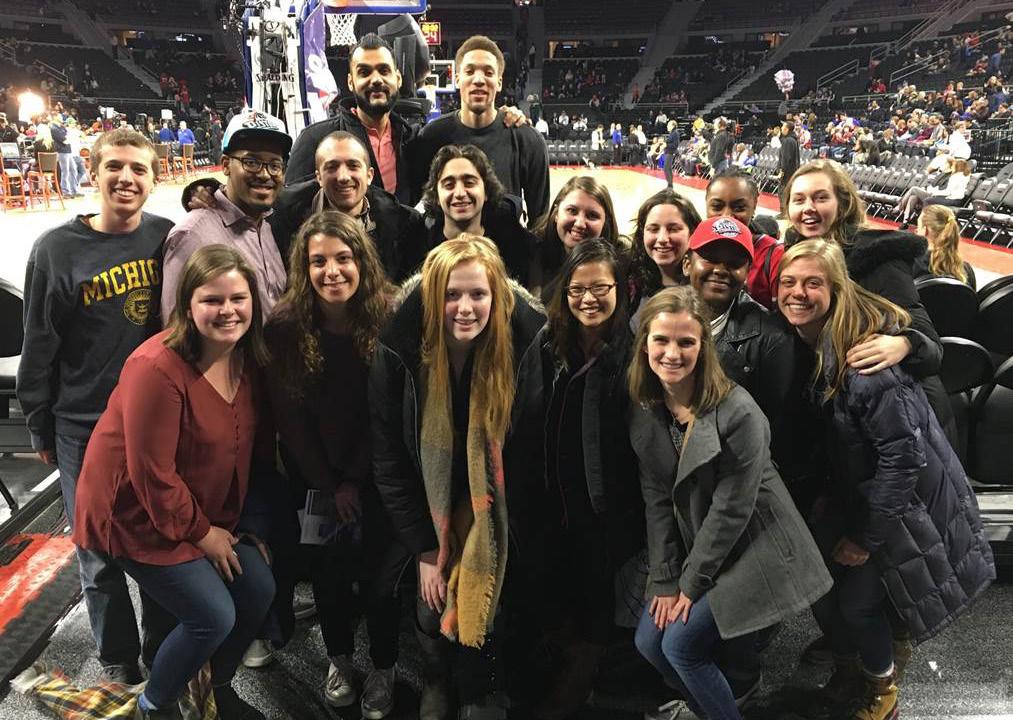
planning. In 2020-21, our inaugural team of DEI Student Leads, Lorna Brown and Maria Ullayet, spent their year imagining a framework for the new positions and created DEI materials that were used in the ORGSTUDY 201 Leadership course as well as the orientations for the incoming 2021 cohort. They also worked with the newly launched DEI Committee, consisting of two professors, two staff members, and two student representatives. They began conversations with faculty about creating greater inclusivity in the curriculum. Organizational Studies now has four students working on DEI efforts via the Student Leadership Team and the OS DEI committee. These advocates address areas including recruitment of students and faculty to the program, creating spaces for students to share their thoughts about OS DEI efforts via town halls, and working with our recruitment team to target underrepresented groups and coordinate application workshops for prospective students. We are proud of the work that has been accomplished thus far, and are excited to stretch ourselves and our students in our continued commitment to creating a more diverse and inclusive space within Organizational Studies.



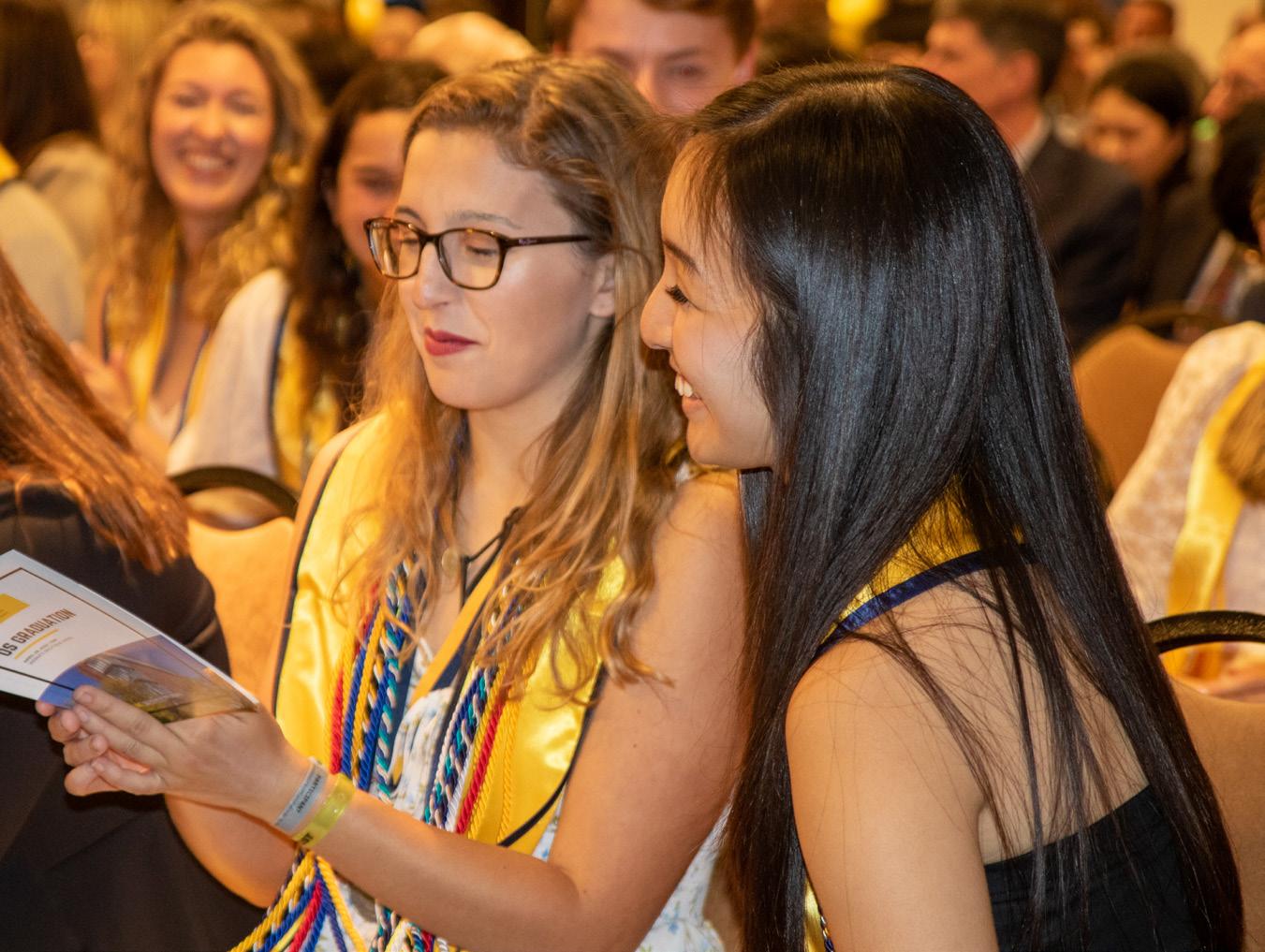

Keynote Speaker
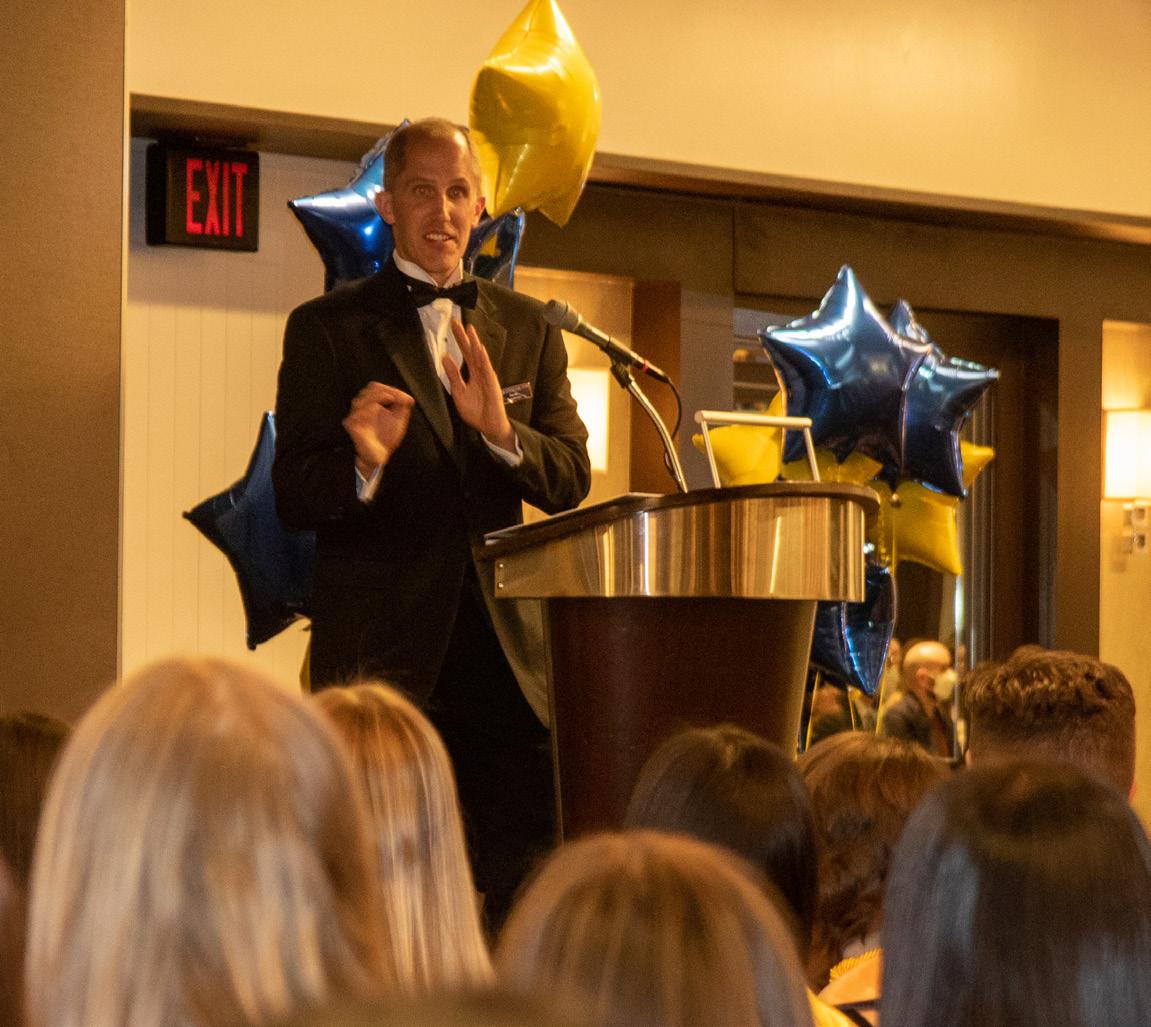
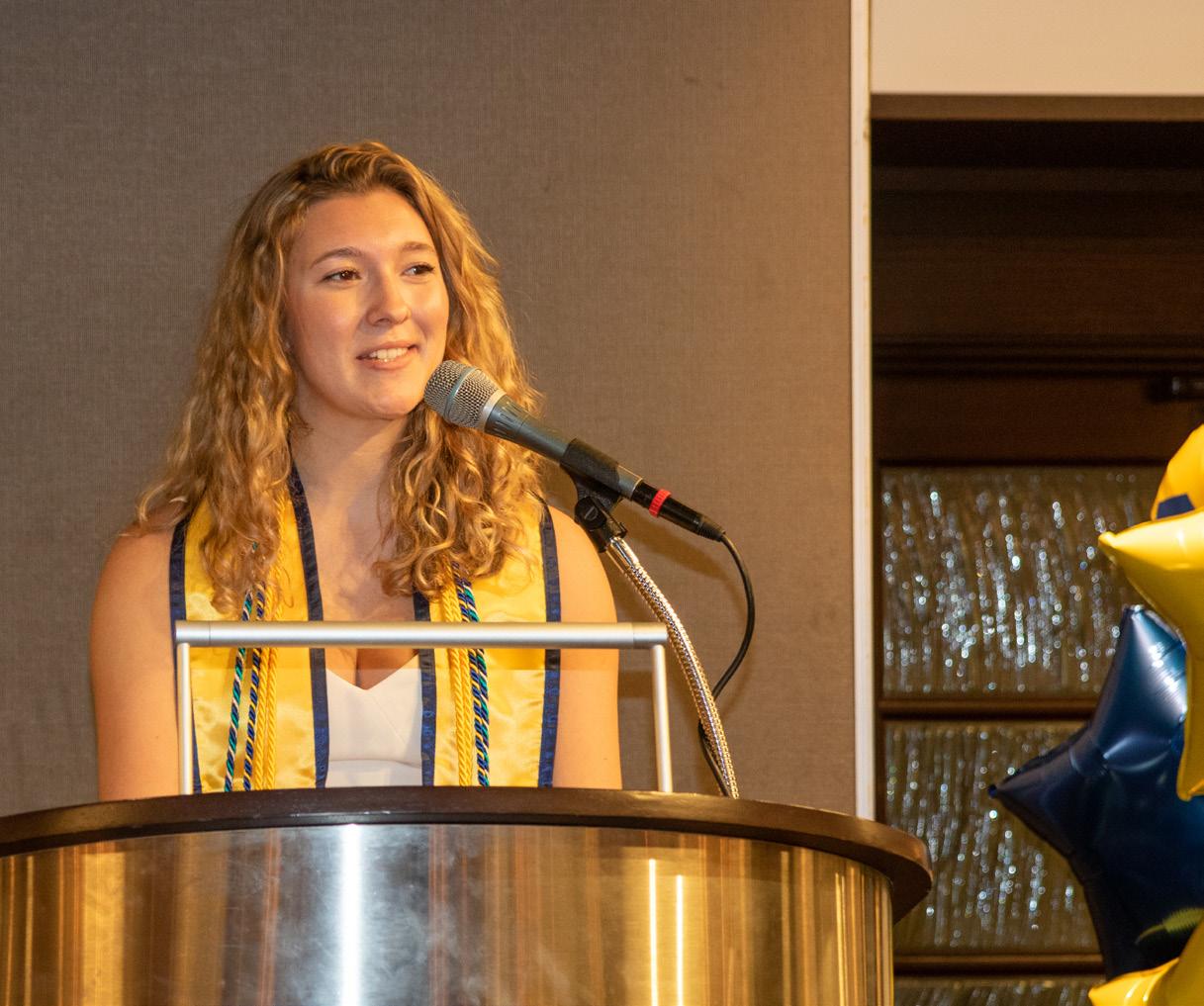
Student Speaker

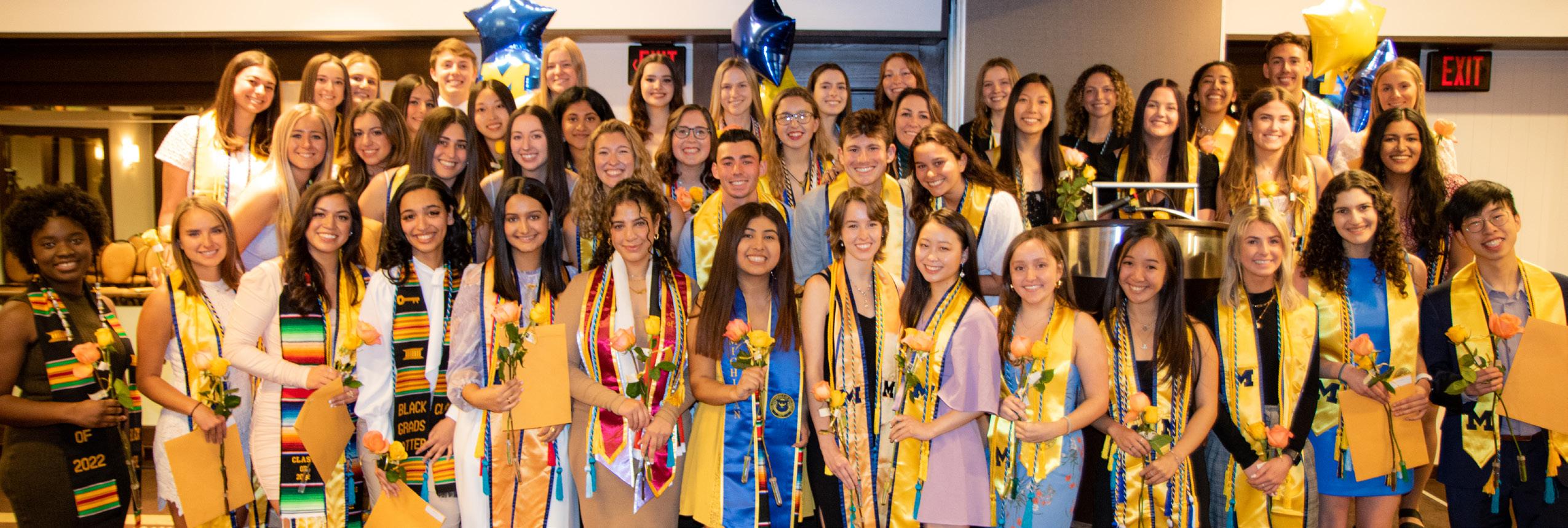
VIEW AND DOWNLOAD OUR ENTIRE GRADUATION GALLERY

Elena Afendoulis
Sara Apelbaum
Hannah Aronow
Mikaela Brecher
Katherine Chung
Catherine Coffman
Samantha Cole
Kaitlyn Colyer H
Nadia Davis
Cherish Dean
Noelle Dunbar
Zoe Engle
Gina Farrell
Stephane Fuerst
Matthew Gates
Adam Gawron
Sophie Gibson
Sierra Gillies H
Josephine Graham
Bushra Habbas-Nimer
Aliya Hakim
Eniah Hill D
OS HONORS
Kaitlyn Colyer
Alvin Hom
Kelsie Imus A

Rahima Jamal
Chloe Kern
Michelle Lee D
Rachel Martin
Maryam Masood
Lindsey Masterman D
Tara Petersen D
Kathy Pham H
Sarah Pomerantz
Jessica Rakowski
Evelyn Reyes
Isis Rodriguez
Kelly Ruddock
Cindy Sarpomaa-Nyarko
Meghan Selvidge
Amanda Shao
Hayden Stone
Sarah Szalai
Madeline Taylor
Sara Tesser
"Fit to Form: Organizational Misconduct in Modern-Day
Drum and Bugle Corps"
Sierra Gillies
"Organizational Response to the Lack of Diversity in STEMRelated Careers"
Kathy Pham
"In the Wake of Black Lives Matter: How Organizational Ideology Informs Philanthropic Donations"

View our symposium recording
Ashley Ward
Rashi Watwani
Dylan Wheatley
Thomas Wiaduck
Sari Wise
Chloe Zhou
H = Honors Students
D = December 2021 Graduates
A = August 2022 Graduates
View our ceremony recording

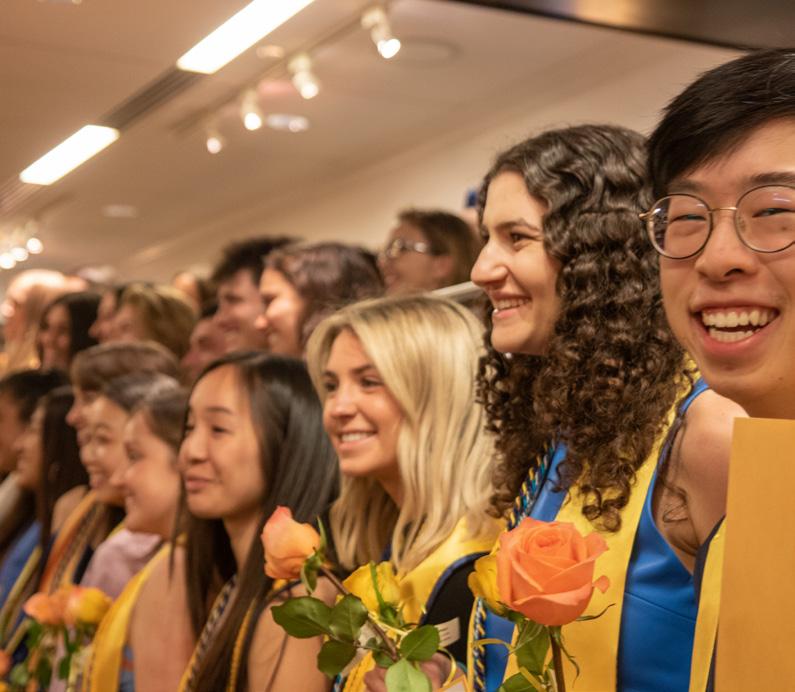
Andy & Ellyn Lansing Leader/Scholar Award
Kathy Pham
Suzanne M. Jones OS Spirit Award
Cherish Dean
Jordan Harris Social Justice Award
Evelyn Reyes
Sara Apelbaum, Tanya Dietz, Cherish Dean, Kathy Pham, and Chelsea Williams
ELIZABETH POPP BERMAN
Beth's new book, ThinkingLikeanEconomist:HowEfficiency Replaced Equality in U.S. Public Policy, was published this spring by Princeton University Press. The Boston Review called it "...easily one of the most important studies of American governance in many years." She begins a three-year term as Director of Organizational Studies on July 1 – in which she knows she will have big shoes to fill!
NICHOLAS CAMP
Nick was excited to introduce the new cohort of students to Organizational Studies in OS305 (in person!), which included a joint DEI case study with OS310 this year. He also launched the Mind in Society Lab (MiSL), a research team that examines the intersections of structural inequality and psychological racial biases. Students from Org Studies, Psychology, and Sociology contributed to research on issues such as neighborhood inequality and policing, and the lab’s work was covered by outlets such as CNN, the Los Angeles Times, Cal Matters, and MSNBC.
MELISSA ELJAMAL
Melissa was awarded the Robin Sarris Outstanding Supervisor Award for her exceptional contributions to the success of the OS department and college that go beyond the ordinary fulfillment of supervisory duties. This is a fantastic and welldeserved honor for Melissa.

Jeremy's new book, Constructing Community: Urban Governance, Development, and Inequality in Boston, was published last summer by Princeton University Press. His book looks at the benefits and consequences of the rise of community-based organizations in urban developments.
Sarah received the 2022 Central Campus Martin Luther King Jr. Spirit Award for her exemplary leadership and contributions to DEI. Sarah states that, "...by challenging oppressive norms, uncovering opportunities to move towards justice, and focusing on community driven change, resources and people are unlocked and empowered to think bigger and take the next step. It is our job to lean in, acknowledge the past and the emotions it evokes, live in the present, and care for the future now, so that we can create a community and world that is engaged and awake, ready to take the next step."
Sara received the Harold R. Johnson Diversity Service Award. Rob Sellers, U-M vice provost for equity and inclusion and the university's Chief Diversity Officer, states that the award "... recognizes University of Michigan faculty members on the Ann Arbor campus who have exhibited outstanding leadership in the area of cultural diversity." Dr. Sellers noted to Sara that her "... contributions to the multicultural mission of the university have been extensive and of extraordinary caliber."
David taught one of only a small handful of courses selected to be taught in the new Central Campus Classroom Building, featuring highly interactive team-based rooms for large classes. He also published a textbook, TheScienceandPracticeofLeadership.
ARNOLD HO
Arnold was promoted to associate professor, with tenure, by the Board of Regents in the fall.
In honor of the OS founding director, the existing endowed Barger Family Professorship has officially been renamed the Richard H. Price Professorship in Organizational Studies.

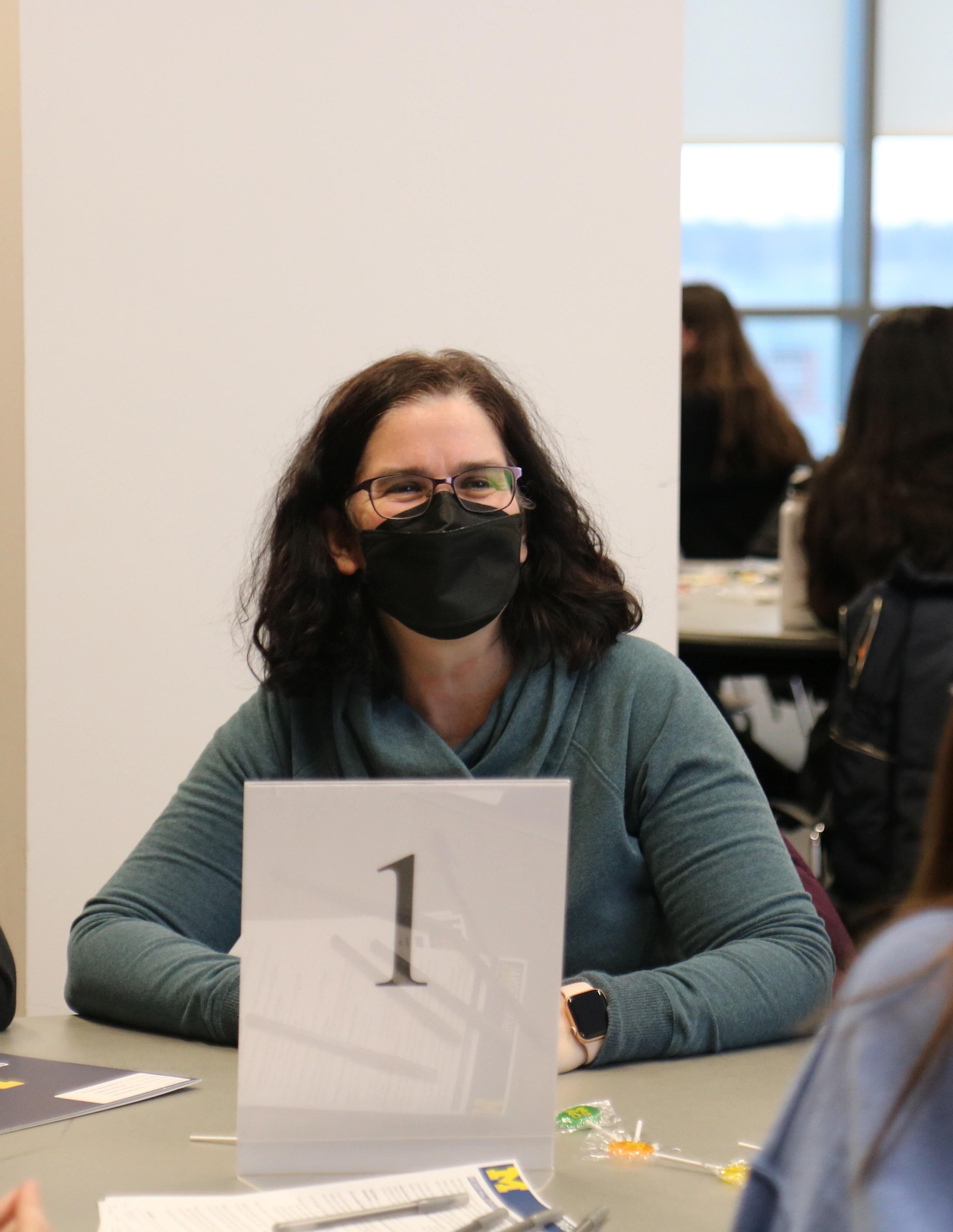

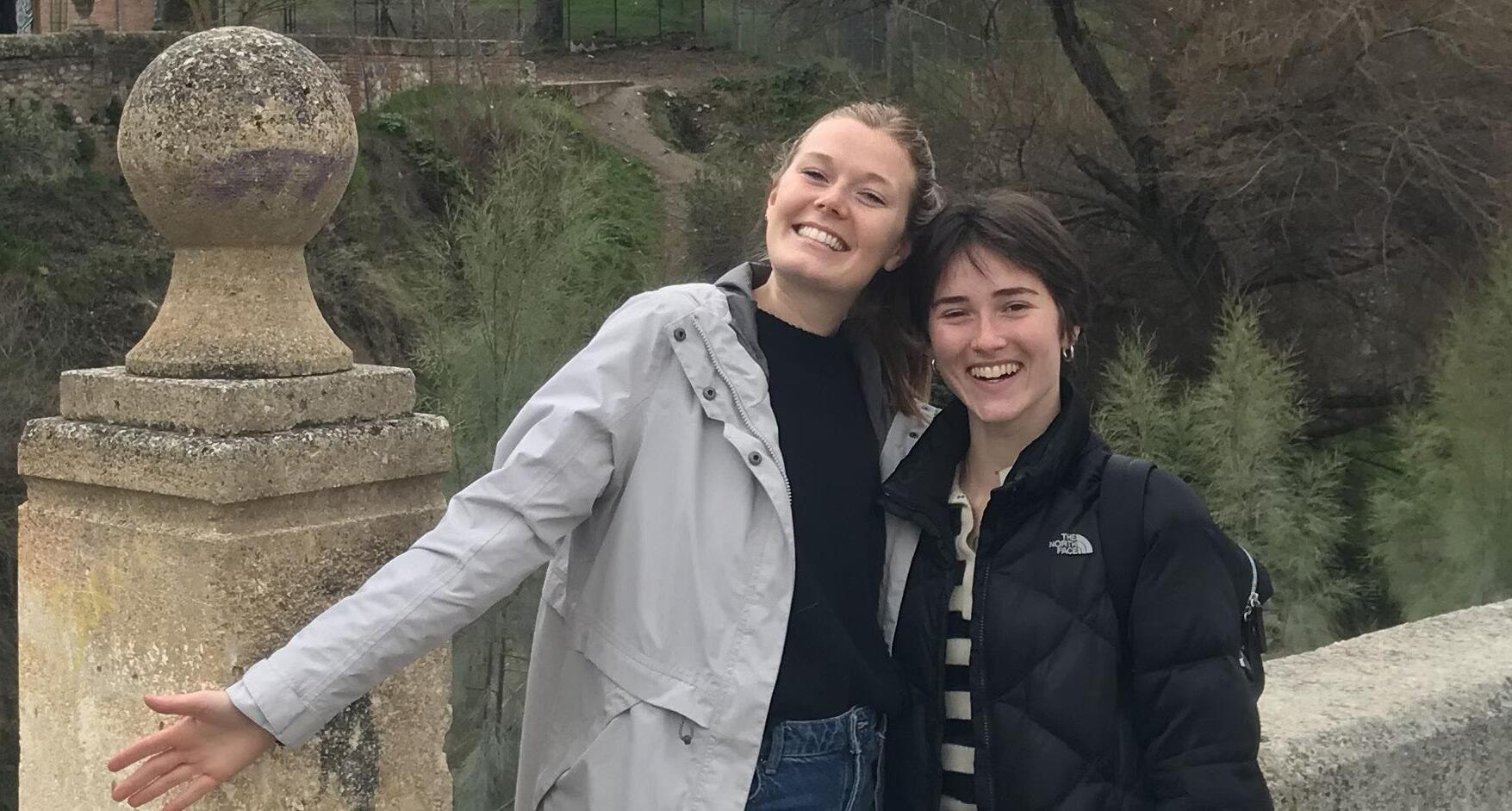
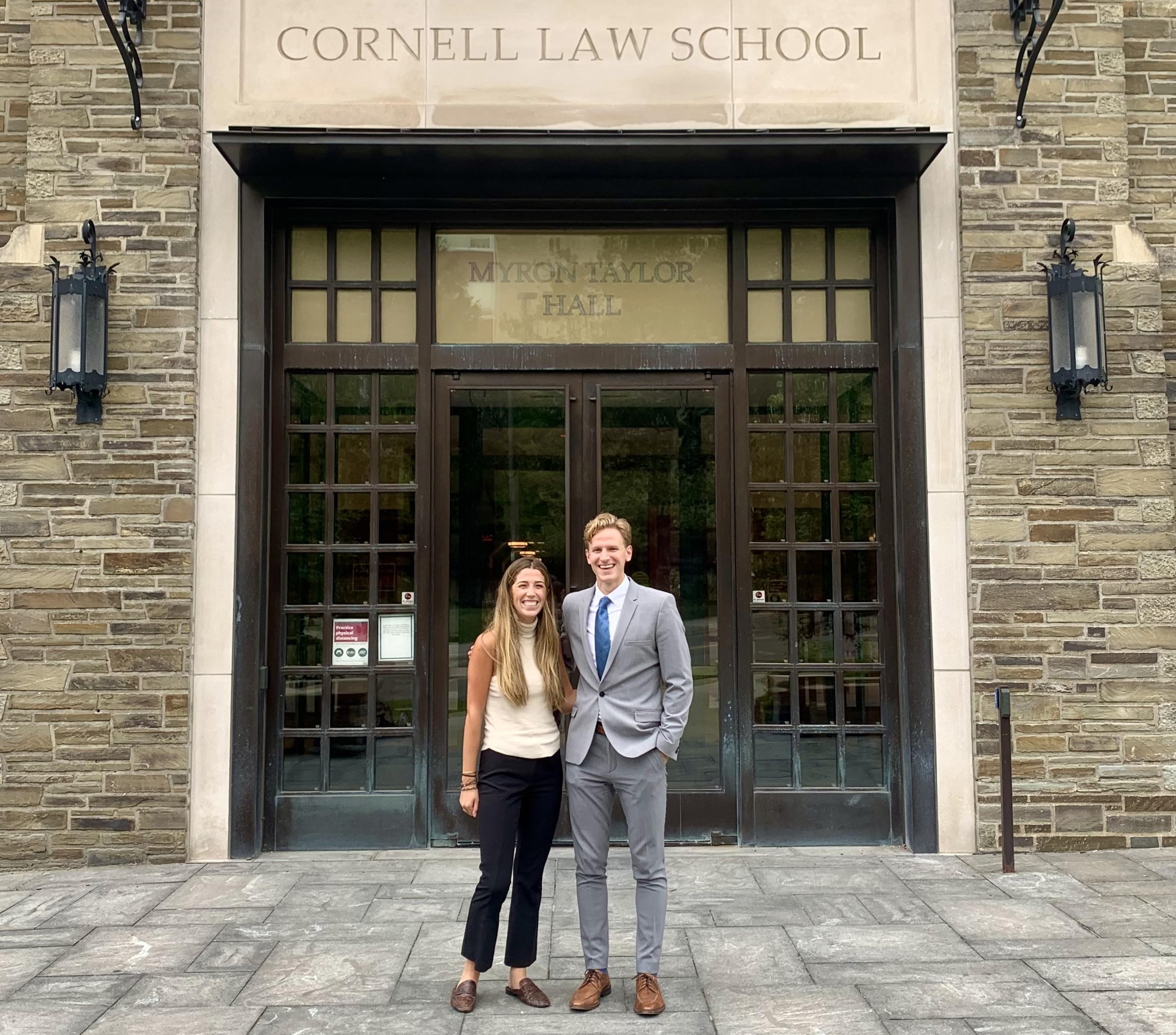
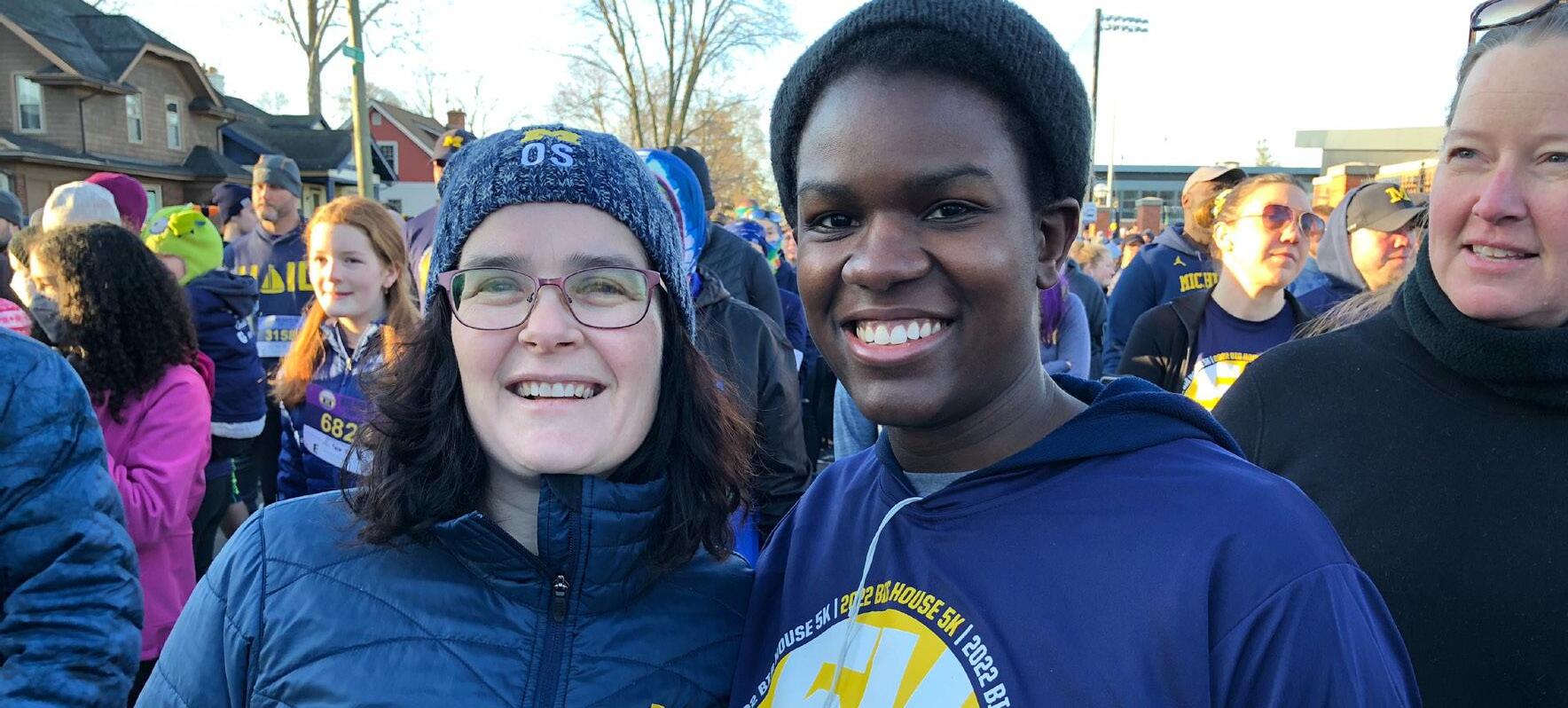
2003
2011
LISA ARNSDORF will be moving
2013
BRITTANI KAGAN was promoted
TARYN SCIBIENSKI and her October of 2021.
2014
JACK DUIVEN was recently
2015
BECCA MITCHELL graduated from Michigan State.
HALEY PRASAD moved to property in Hawaii.
STACY RADIN graduated Management with an MBA.
BENJAMIN WEINSTEIN was organization for the world's deal flow, ideas, and structures.
HEATHER KENDRICK graduated with a master's degree in Education and Entrepreneurship.
moving to Stuttgart, Germany in July.
promoted to Partner at Portal A. husband welcomed their son Henry in
JULIA KORTBERG recently completed 104 hours of Co-Active Institute Coach Training, an accredited coaching program through the International Coaching Federation (ICF), and will be a certified professional leadership coach in September.
NATHAN NOVARIA completed the Chicago and New York City marathons this past year. He will be shooting for marathon number six this October in Chicago again.
engaged to U-M alum Jessica Branski ('14).
AJAY KOLLI graduated from the U-M medical school and will be starting ophthalmology residency at UCSF.
graduated with a PhD in Organizational Behavior
Oahu and purchased her first investment from Northwestern's Kellogg School of was named #1 Employee at 3i, a membership best private investors to share alternative structures.
SPENCER BARTOK will be heading to Northwestern's Kellogg School of Management for his MBA this fall.
YUKA NAYA will be coming back to the U.S. and joining Tuck School of Business this summer.
NADIA FINKEL is a second year law student at Georgetown Law and an incoming summer associate at Simpson, Thacher, & Bartlett LLP.
JOSIAH HIMMELMAN will be getting married to OS alum Stella Mayer ('19) in July.
graduated from Harvard University Education Leadership, Organizations
ISABELLE JACOBS is graduating from the U-M Master of Management program through the Ross School of Business and will be starting a full time job at Deloitte as a Marketing Analyst.
ALEX PAN is creating a game with another U-M alum, and accidentally composed an EP album for it.
ELIZABETH POPP BERMAN
Associate Professor, Organizational Studies (OS Advisory Committee)
NICHOLAS CAMP
Assistant Professor, Organizational Studies
LISA FEIN
Lecturer, Organizational Studies
ARNOLD HO
Associate Professor, Organizational Studies and Psychology (OS Advisory Committee)
JEREMY LEVINE
Assistant Professor, Organizational Studies
MARK MIZRUCHI
Director, Organizational Studies and Professor, Sociology and Ross School of Business (OS Advisory Committee)
STEVEN SAMFORD
Assistant Professor, Organizational Studies
SARA SODERSTROM
Associate Professor, Organizational Studies and Program in the Environment (OS Advisory Committee)
DAVID SWEETMAN
Lecturer, Organizational Studies
BRYAN ADATO
Student Services Coordinator
TANYA DIETZ
Executive Assistant
MELISSA ELJAMAL
Chief Administrator
CATHERINE PHILBIN
Advising Coordinator
CHELSEA WILLIAMS Events & Communications Coordinator
ELIZABETH ARMSTRONG Professor, Sociology and Women’s Studies (OS Advisory Committee)
WAYNE BAKER Professor, Ross School of Business and Sociology
MICHAEL BASTEDO Professor, School of Education
GERALD DAVIS Professor, Ross School of Business and Sociology (OS Advisory Committee)
RICHARD GONZALEZ Professor, Psychology and Statistics
KATHRYN HEINZE
Associate Professor, School of Kinesiology (OS Alum)
ANDREW HOFFMAN Professor, School for Environment and Sustainability and Ross School of Business (OS Advisory Committee)
RAMASWAMI MAHALINGAM Professor, Psychology and Women’s Studies
JASON OWEN-SMITH Professor, Sociology (OS Advisory Committee)
SHOBITA PARTHASARATHY Professor, Ford School of Public Policy and Women’s Studies
RICHARD H. PRICE Professor Emeritus, Psychology
LANCE SANDELANDS Professor, Psychology and Ross School of Business
DENISE SEKAQUAPTEWA Professor, Psychology
GRETCHEN SPREITZER Professor, Ross School of Business
JAMES P. WALSH Professor, Ross School of Business (OS Advisory Committee)


JORDAN B. ACKER
MICHAEL J. BEHM
MARK J. BERNSTEIN
PAUL W. BROWN
SARAH HUBBARD
DENISE ILITCH
RON WEISER
KATHERINE E. WHITE






Weiser Hall, Suite 800 | 500 Church Street Ann Arbor, MI 48109
734.764.6767 | org.studies@umich.edu https://lsa.umich.edu/orgstudies
© 2022 Regents of the University of Michigan